Abstract
The responses of pigeons were maintained by a DRL schedule of food reinforcement. With this schedule, responses were reinforced only when a fixed period of time elapsed without an intervening response. Punishment of all responses reduced the frequency of these responses as a direct function of the punishment intensity. As a consequence of the increased temporal spacing of responses, more reinforcements resulted during punishment. Under progressively higher intensities of punishment, the reinforcement frequency increased to a maximum value and then decreased at the highest intensities. The increased frequency of reinforcement which resulted during punishment did not counteract the suppressive effect of punishment, nor did it lead to a low response rate after punishment was removed. Punishment did not reduce the inter-response time distribution uniformly, but rather especially reduced the number of short inter-response times. Even at the low punishment intensities, the number of short inter-response times was considerably reduced. After punishment was discontinued, performance recovered almost completely after a compensatory burst. The number as well as the temporal pattern of responses returned to normal.
Full text
PDF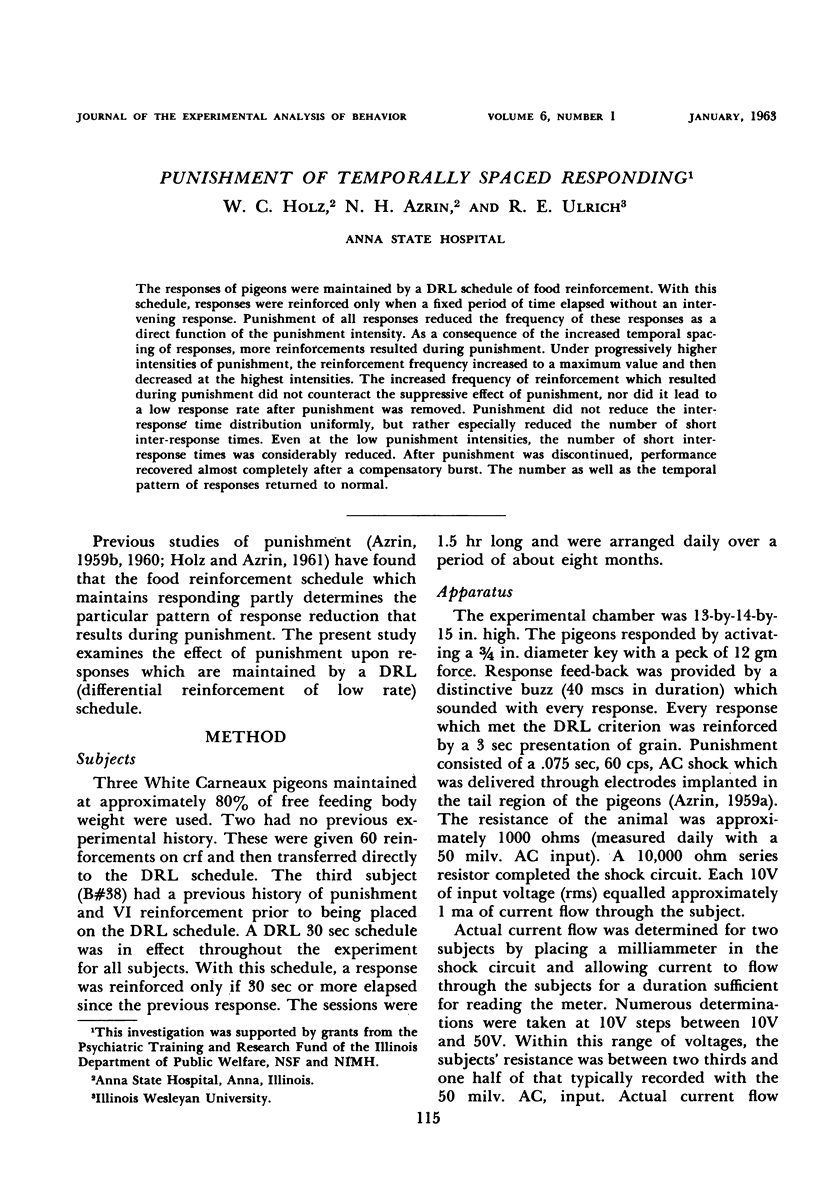
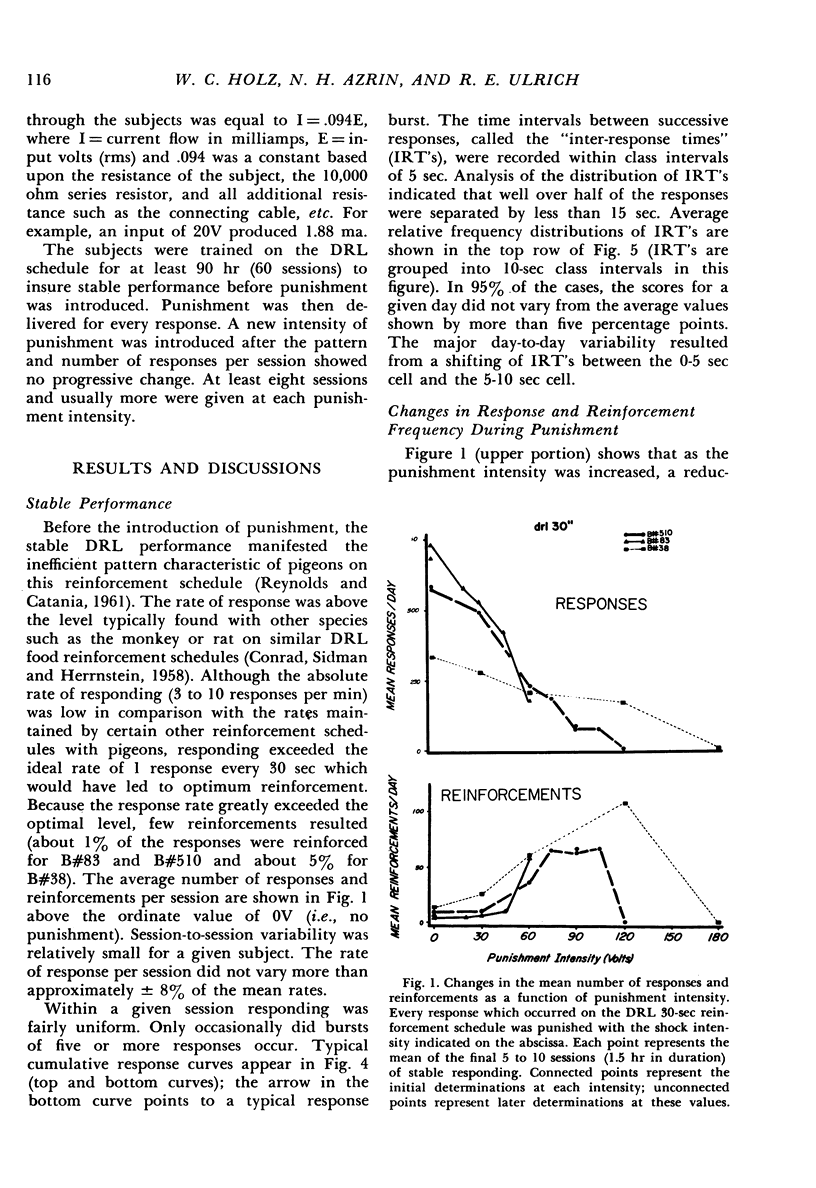
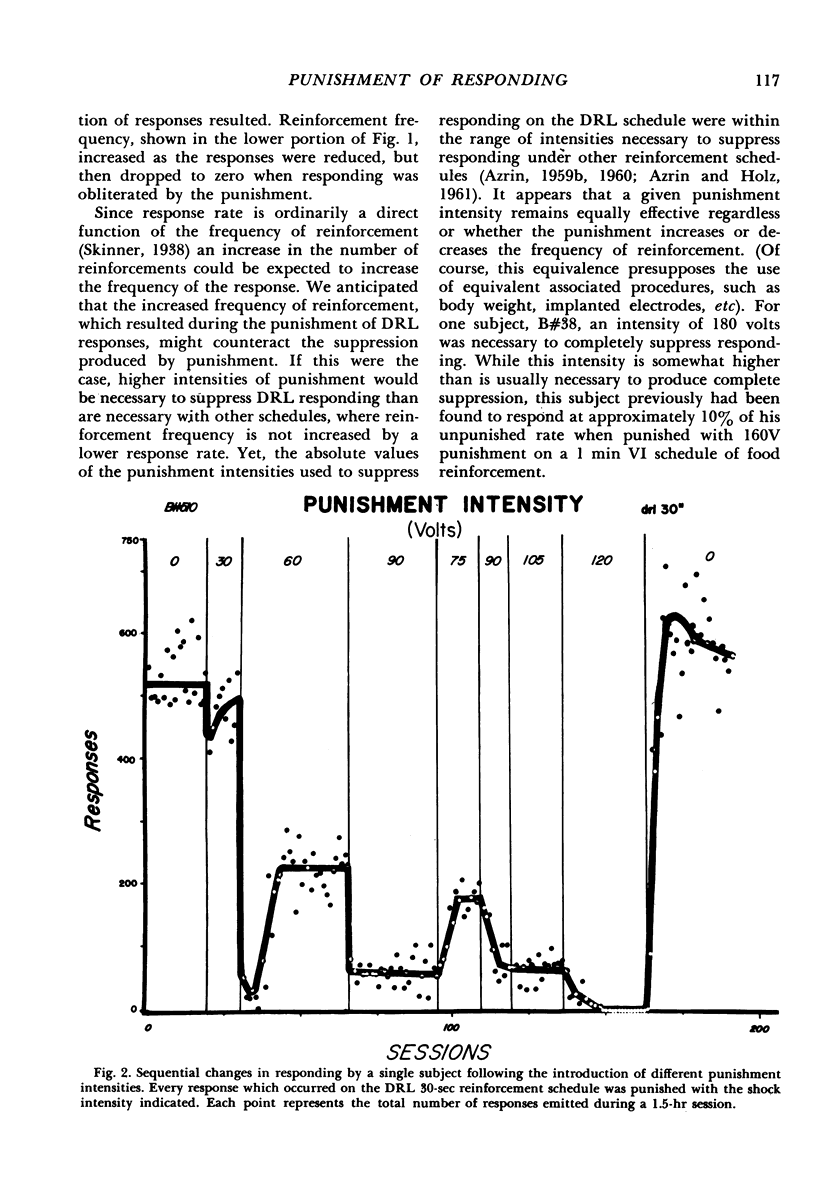
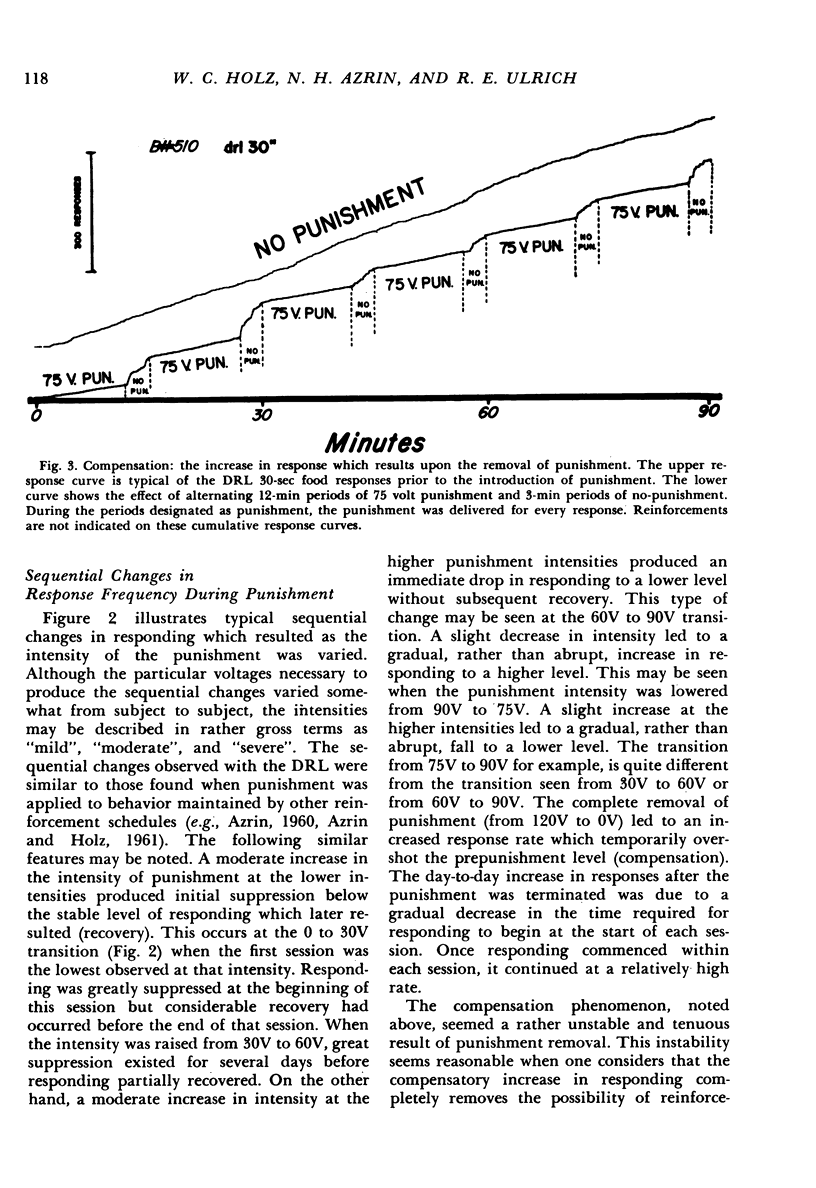
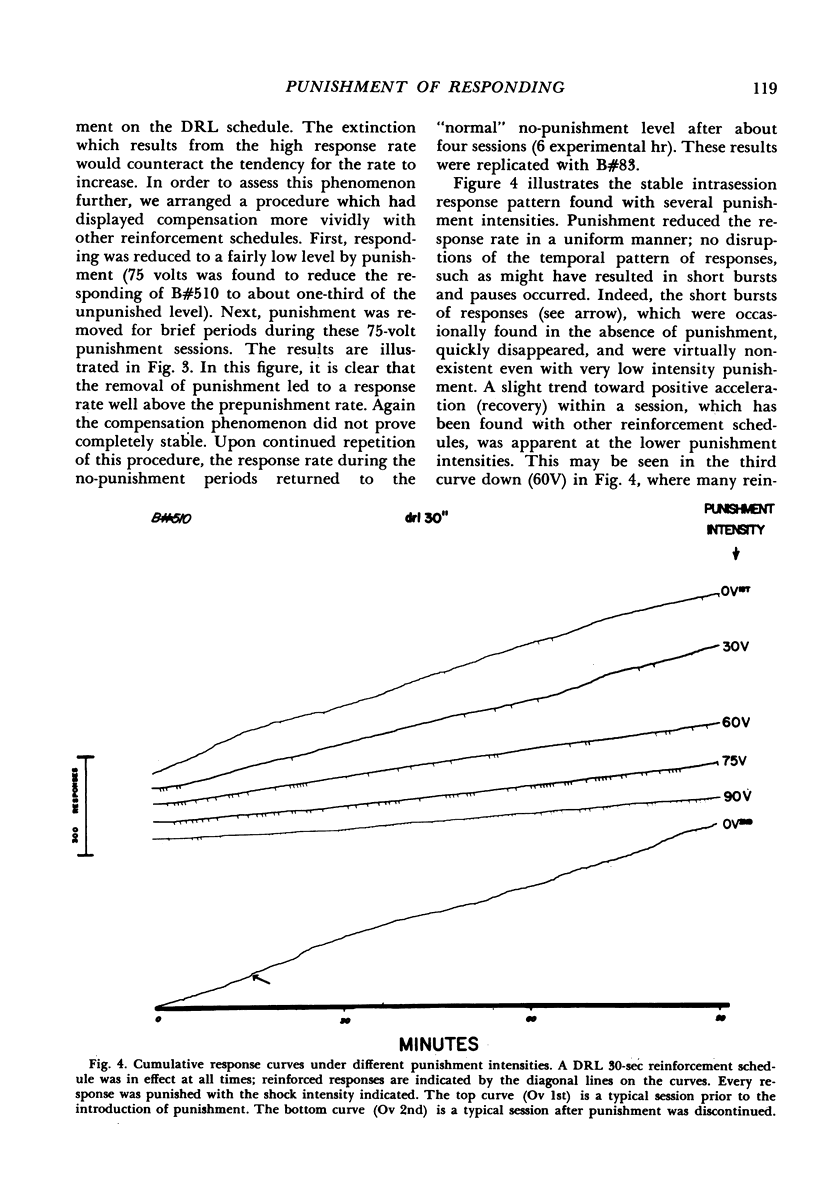
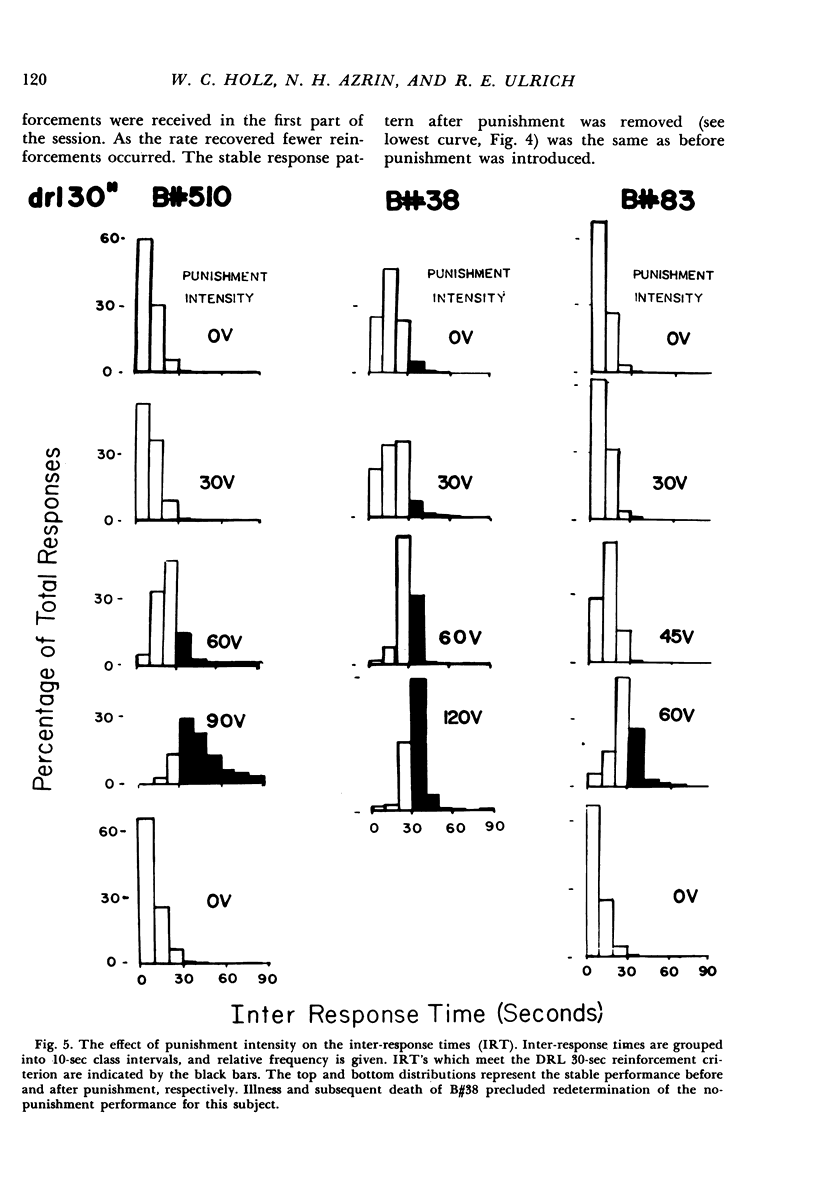
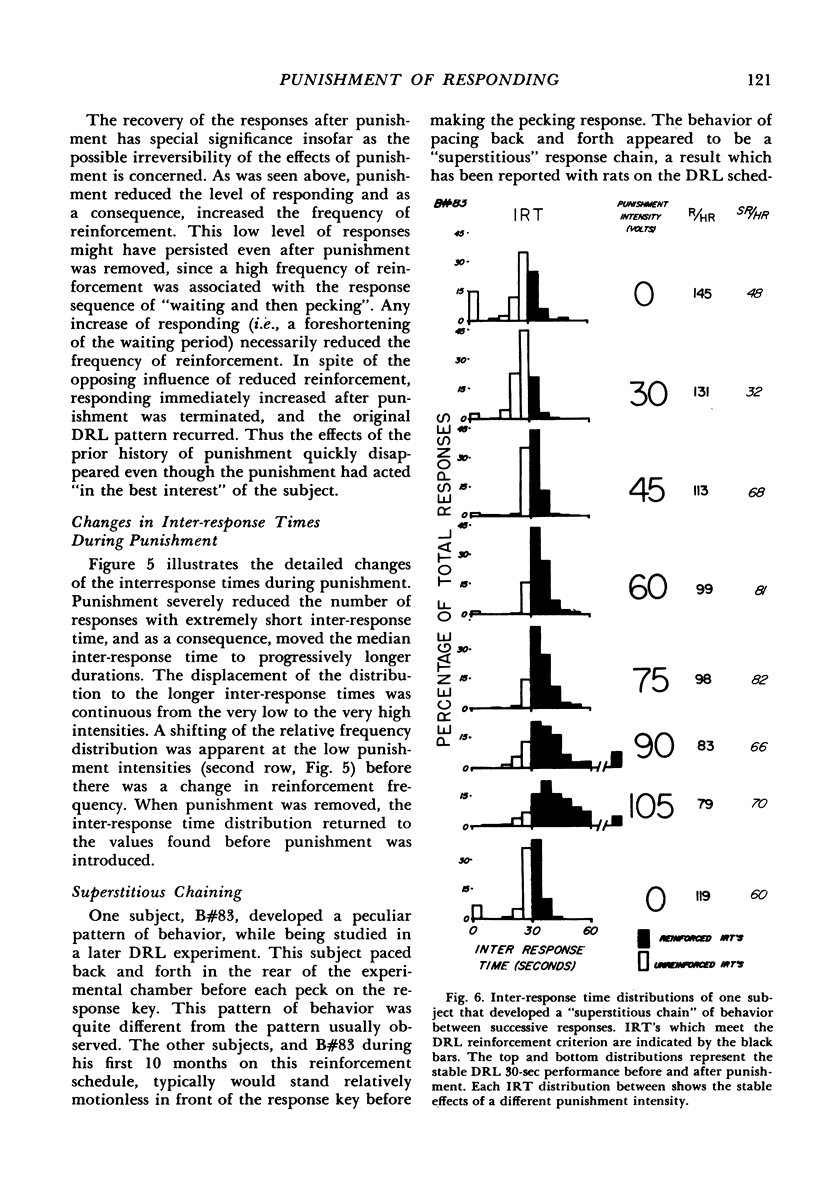
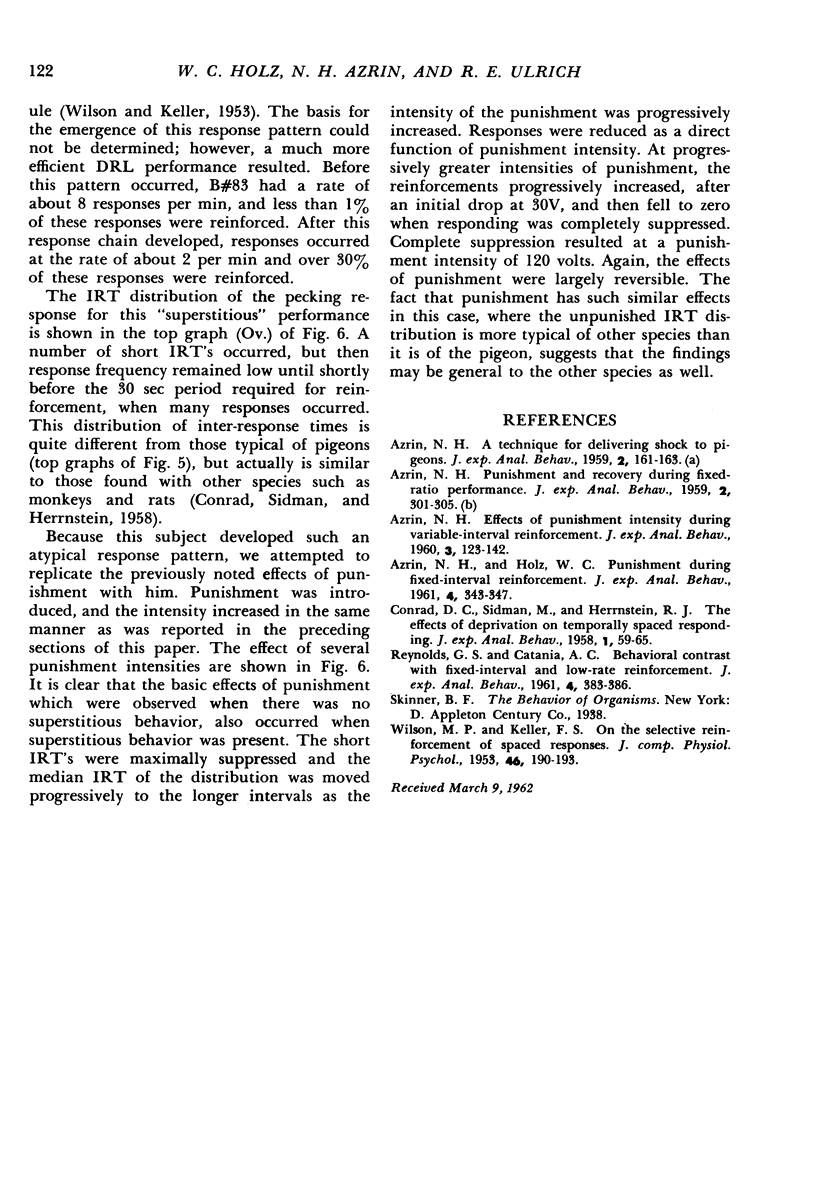
Selected References
These references are in PubMed. This may not be the complete list of references from this article.
- AZRIN N. H. A technique for delivering shock to pigeons. J Exp Anal Behav. 1959 Apr;2:161–163. doi: 10.1901/jeab.1959.2-161. [DOI] [PMC free article] [PubMed] [Google Scholar]
- AZRIN N. H. Effects of punishment intensity during variable-interval reinforcement. J Exp Anal Behav. 1960 Apr;3:123–142. doi: 10.1901/jeab.1960.3-123. [DOI] [PMC free article] [PubMed] [Google Scholar]
- AZRIN N. H., HOLZ W. C. Punishment during fixed-interval reinforcement. J Exp Anal Behav. 1961 Oct;4:343–347. doi: 10.1901/jeab.1961.4-343. [DOI] [PMC free article] [PubMed] [Google Scholar]
- AZRIN N. H. Punishment and recovery during fixed-ratio performance. J Exp Anal Behav. 1959 Oct;2:301–305. doi: 10.1901/jeab.1959.2-301. [DOI] [PMC free article] [PubMed] [Google Scholar]
- CONRAD D. G., SIDMAN M., HERRNSTEIN R. J. The effects of deprivation upon temporally spaced responding. J Exp Anal Behav. 1958 Jan;1:59–65. doi: 10.1901/jeab.1958.1-59. [DOI] [PMC free article] [PubMed] [Google Scholar]
- PLISKOFF S. Rate-change effects during a pre-schedule-change stimulus. J Exp Anal Behav. 1961 Oct;4:383–386. doi: 10.1901/jeab.1961.4-383. [DOI] [PMC free article] [PubMed] [Google Scholar]
- WILSON M. P., KELLER F. S. On the selective reinforcement of spaced responses. J Comp Physiol Psychol. 1953 Jun;46(3):190–193. doi: 10.1037/h0057705. [DOI] [PubMed] [Google Scholar]


